Doro
Doro zieht 1993 aus Chemnitz weg – und kehrt viele Jahre später zurück.
Doro moves away from Chemnitz in 1993 – and returns many years later.
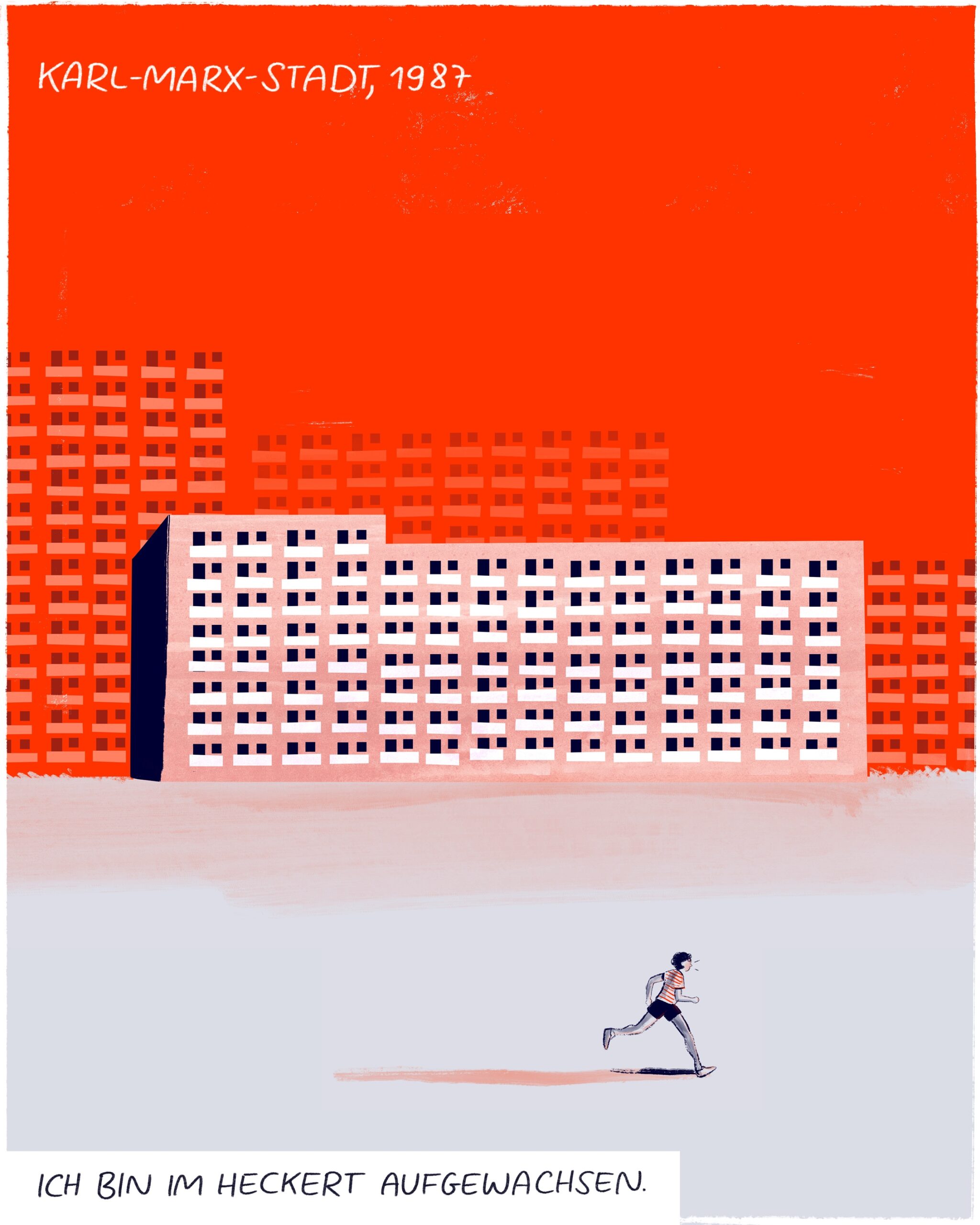
Karl-Marx-Stadt, 1987
I grew up in the Heckert area.
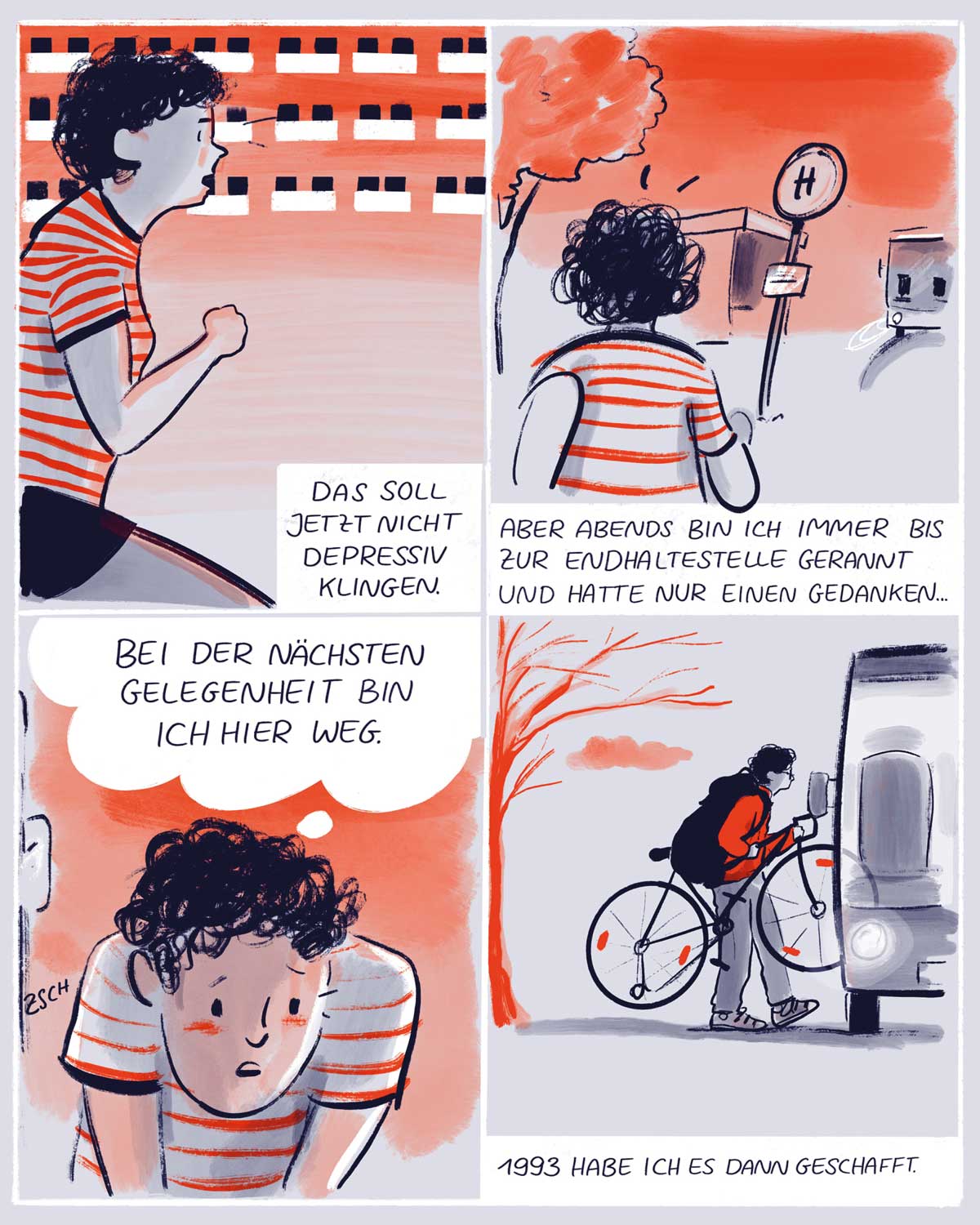
This isn‘t supposed to sound depressive.
But every night, I ran to the last bus stop and had only one thought:
„The next chance, I‘m getting outta here.“
In 1993 I made it.
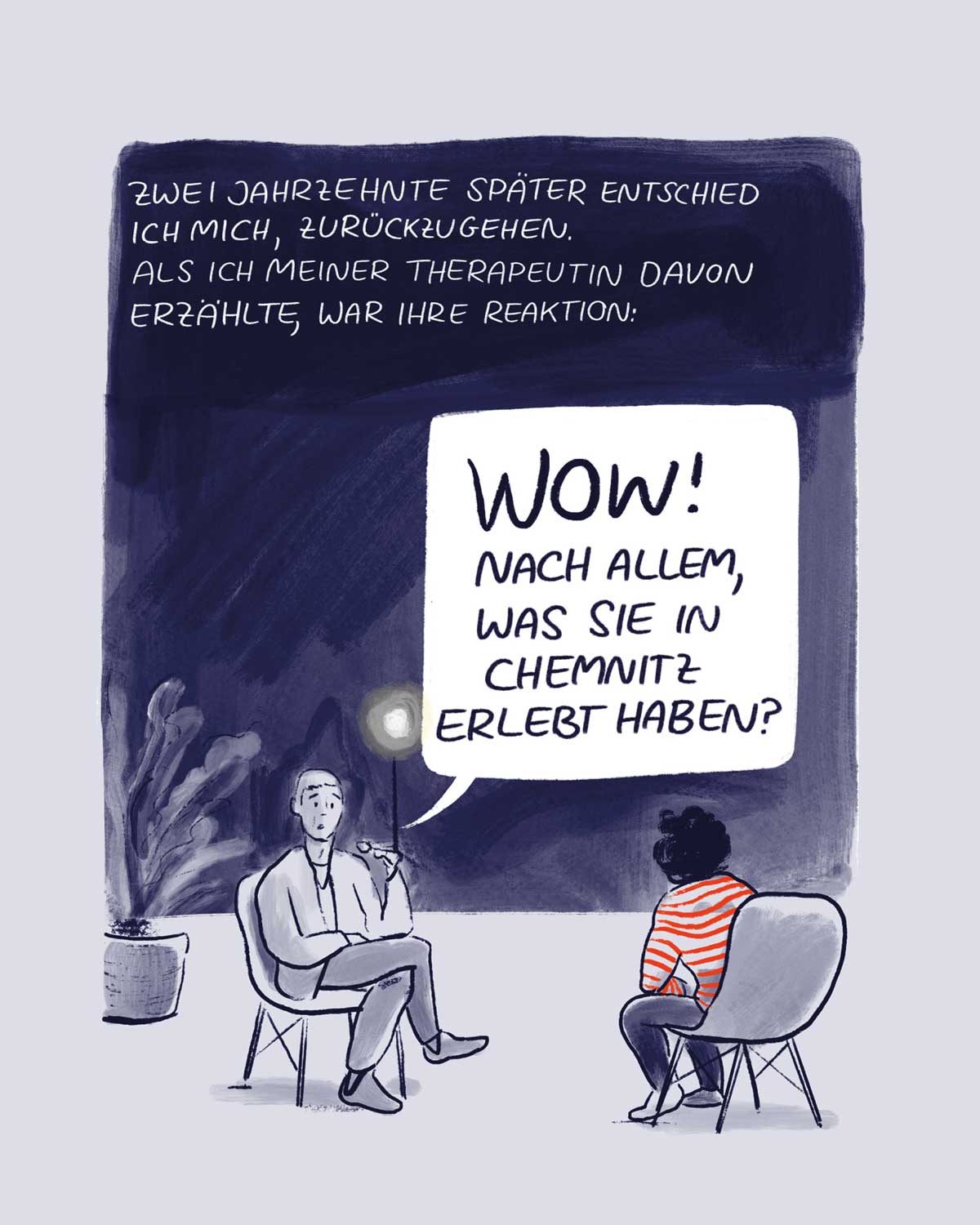
Two decades later, I decided to go back. When I told my therapist about it, her reaction was: “Wow! After everything you went through there?”
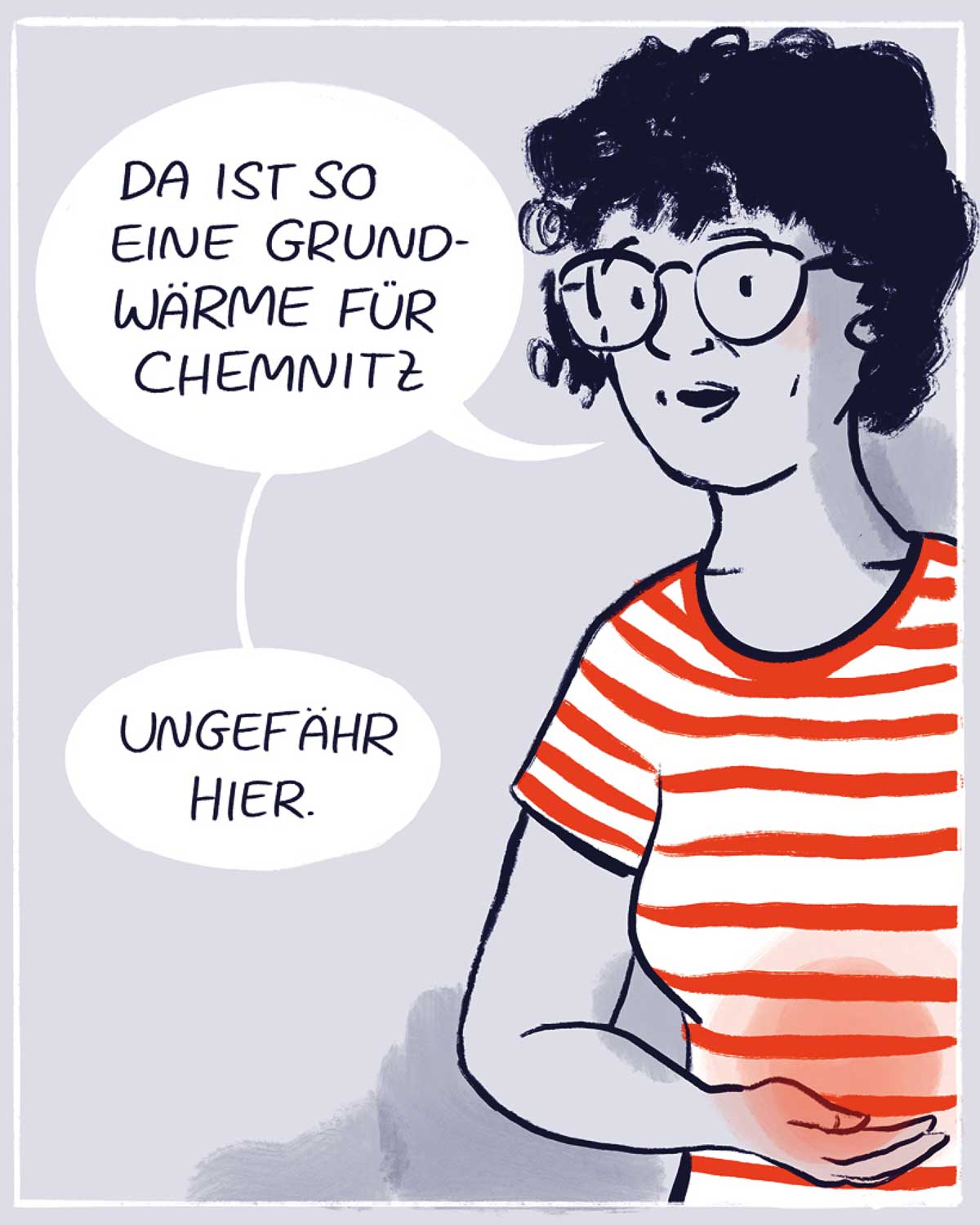
I feel a warmth for Chemnitz.
Around here, roughly speaking.
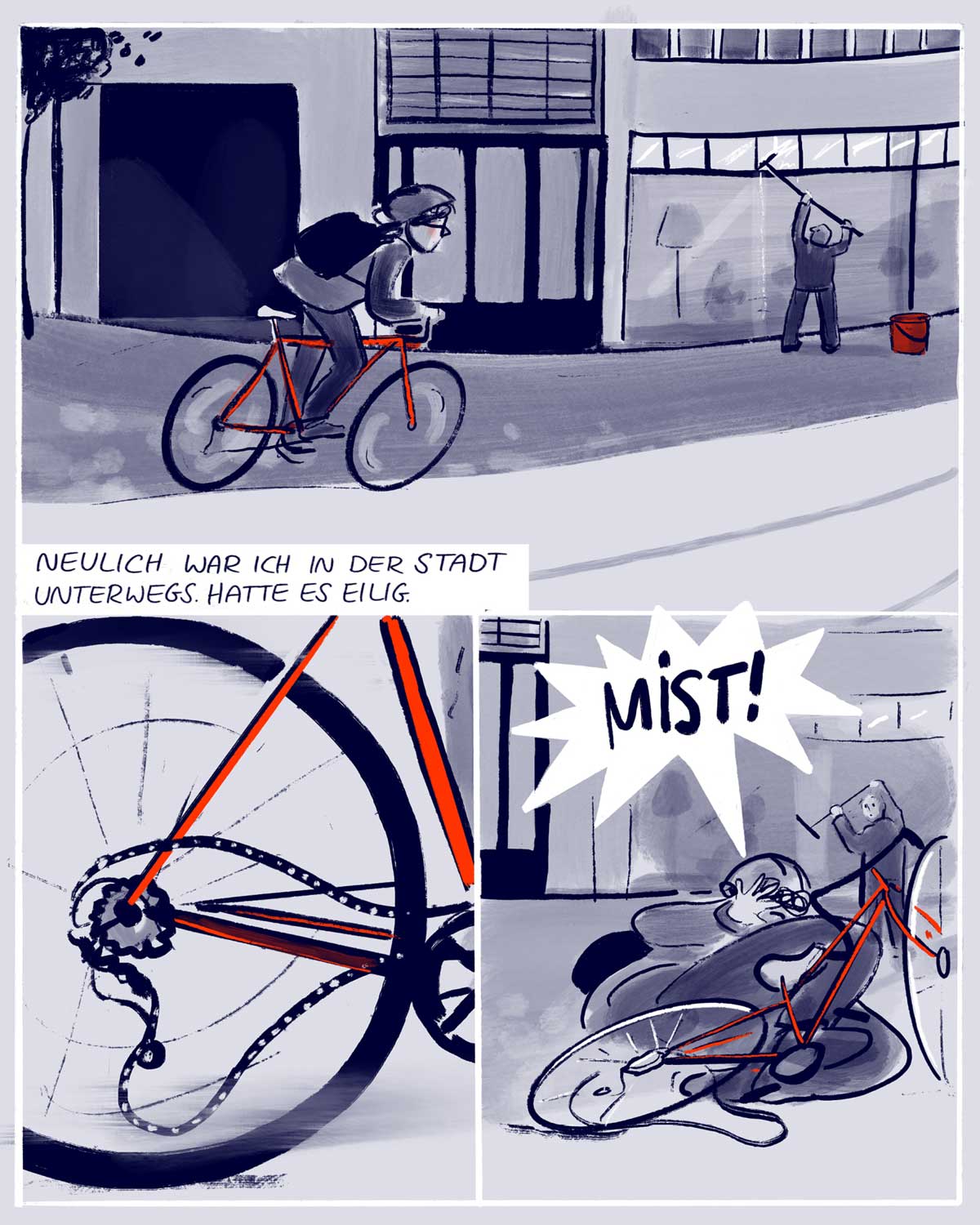
„Damn!“
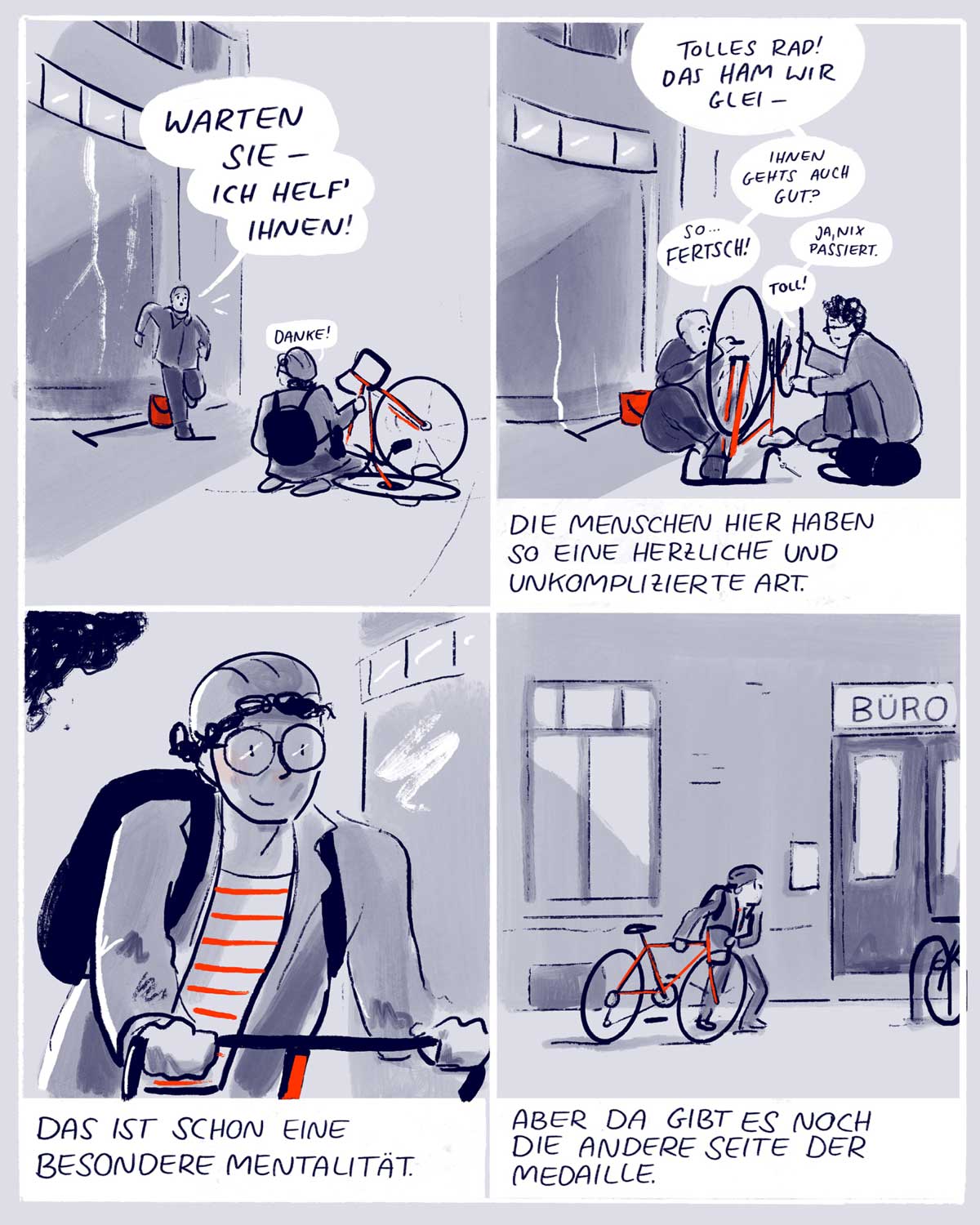
„Wait! I’ll help you!“
„Thanks!“
„Awesome bike! We’ve got that covered. Are you okay?“
„Yes, nothing happened!“
“So, done!”
„Great!“
The people here are so warm and uncomplicated.
It’s a special mentality.
But there’s another side to the coin.
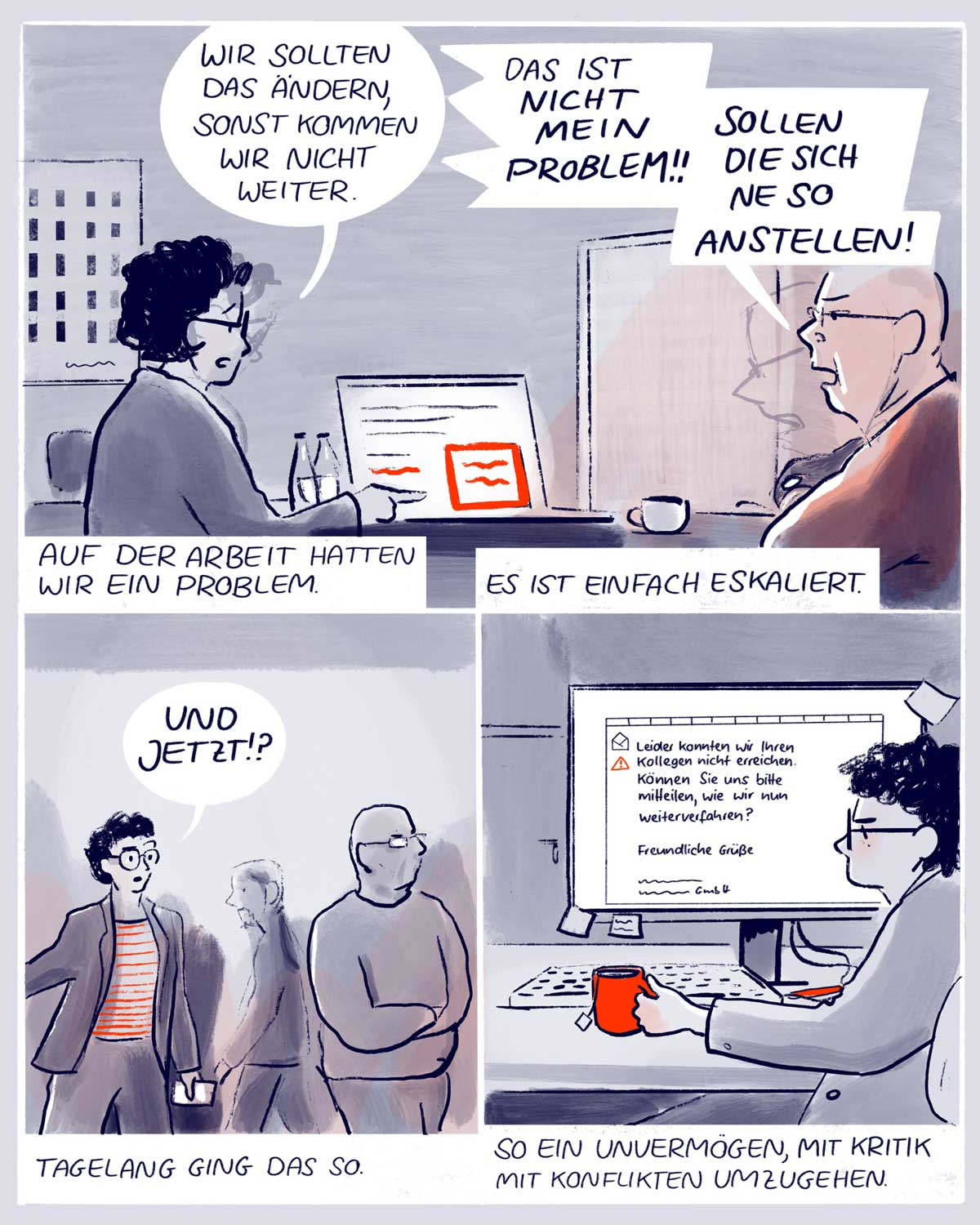
We had a problem at work.
I wanted to talk to my colleague and it completely escalated.
“We really have to change this, otherwise we won’t get anywhere!” – “That’s not my problem! They should just get over it!”
“And now!?”
It went on like this for days.
Such an incapability to handle criticism and conflicts!
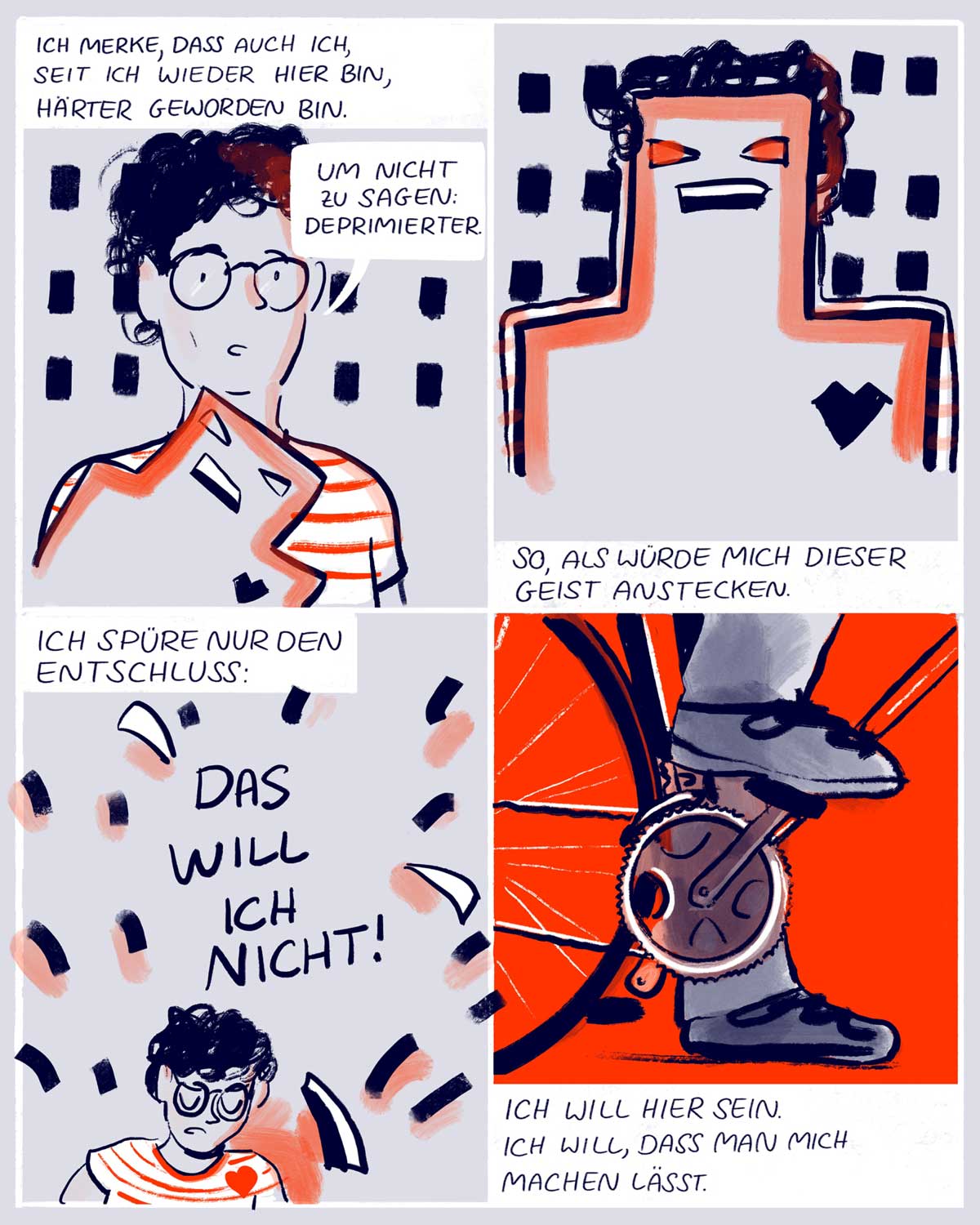
“Not to say more depressed.”
As if this spirit were infecting me.
And I feel only one resolution:
“I don’t want that!”
“I want to be here. I want, that people to let me do my thing.”

„Where’s this supposed to go?“
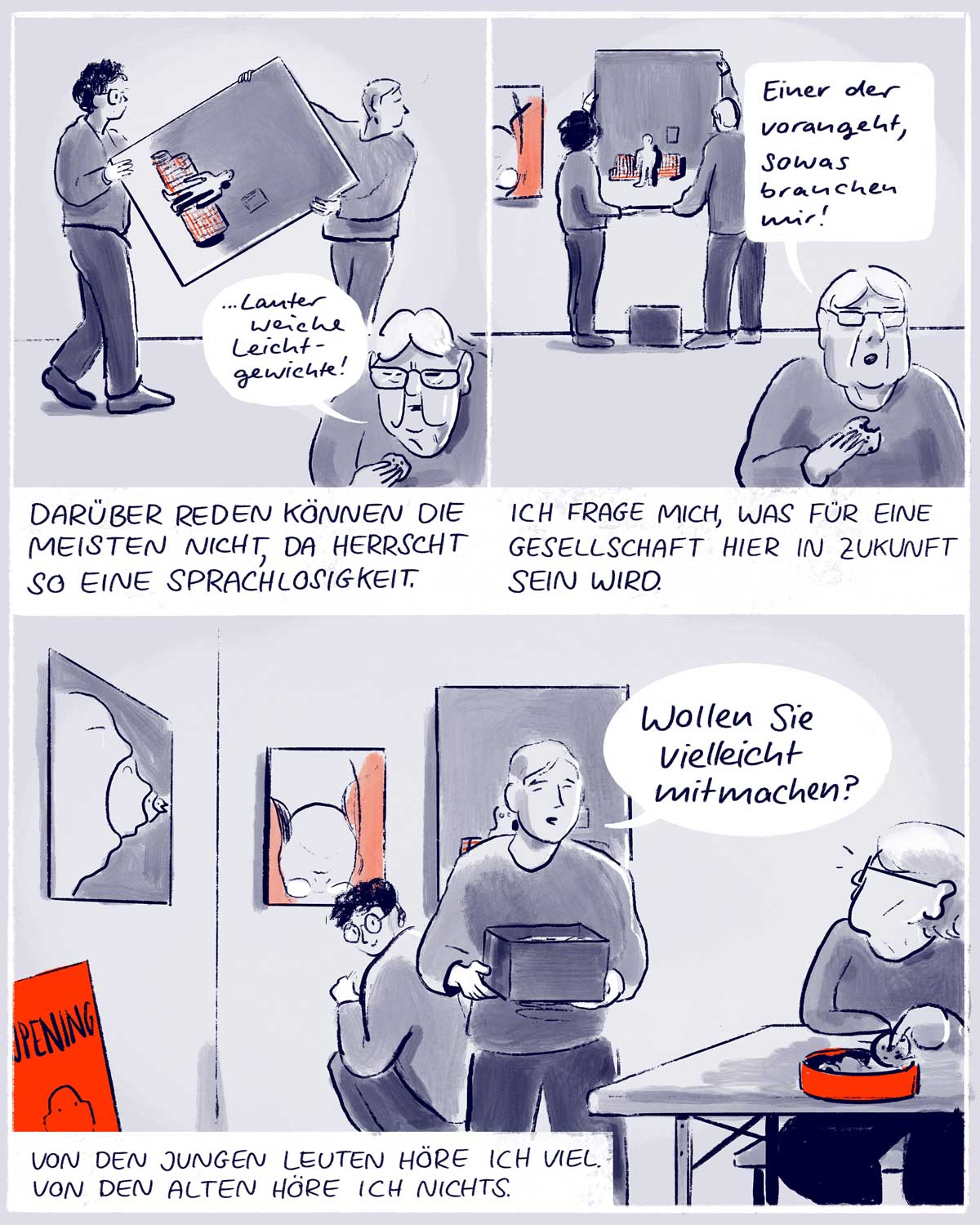
Most people can’t talk about it. There’s a kind of speechlessness.
“Where is this going?”
I wonder what kind of society we will have here in the future.
“Nothing but soft lightweighs!”
“Someone who steps up and leads the way, that’s what we need!”
From young people, I hear a lot. From the old, I hear nothing.
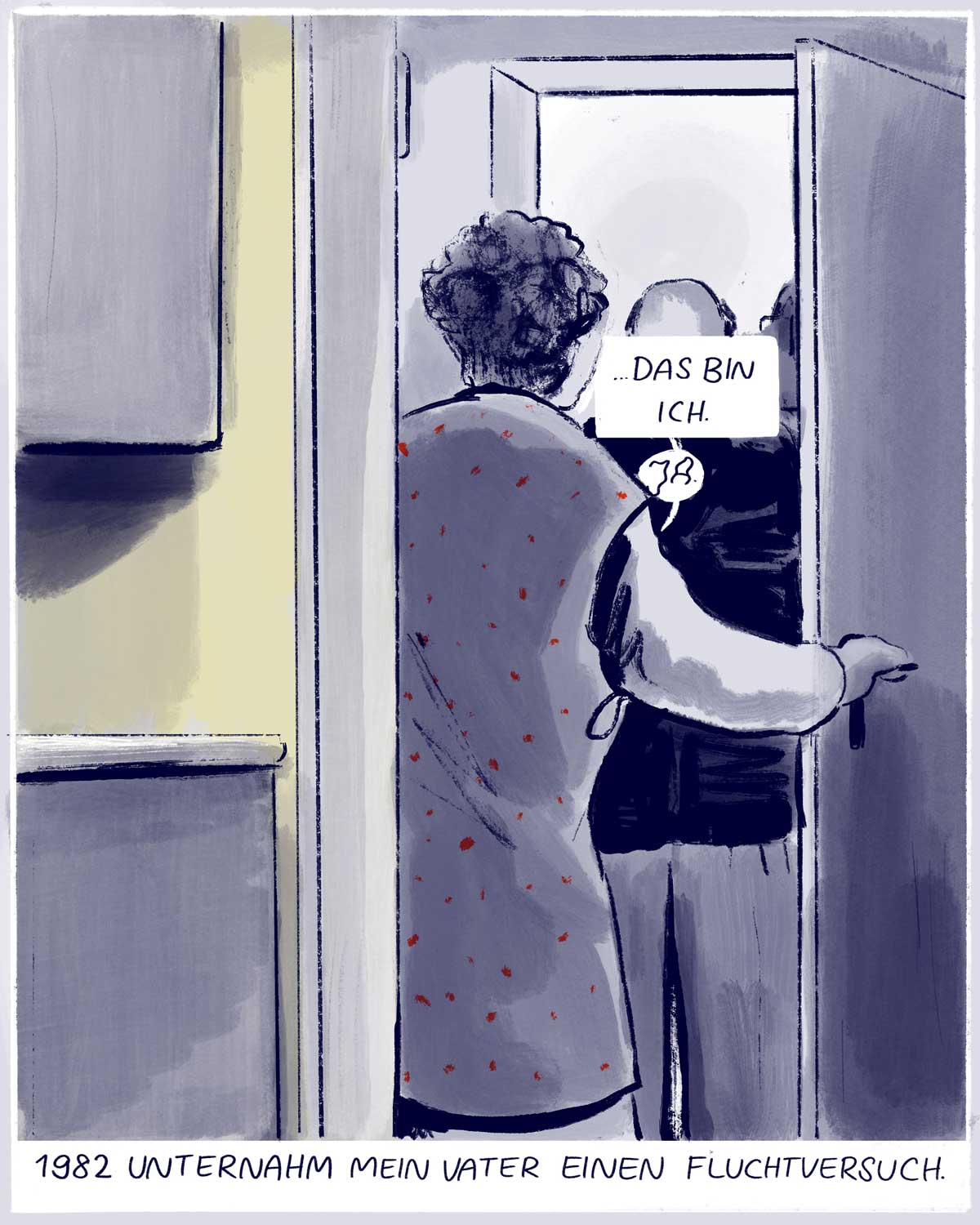
In 1982, my father attempted to escape with a friend.
“… That’s me. Yes.”

„Someone was just here. They caught Dad.“
„STOP!“
He was taken to Kaßberg-Prison.
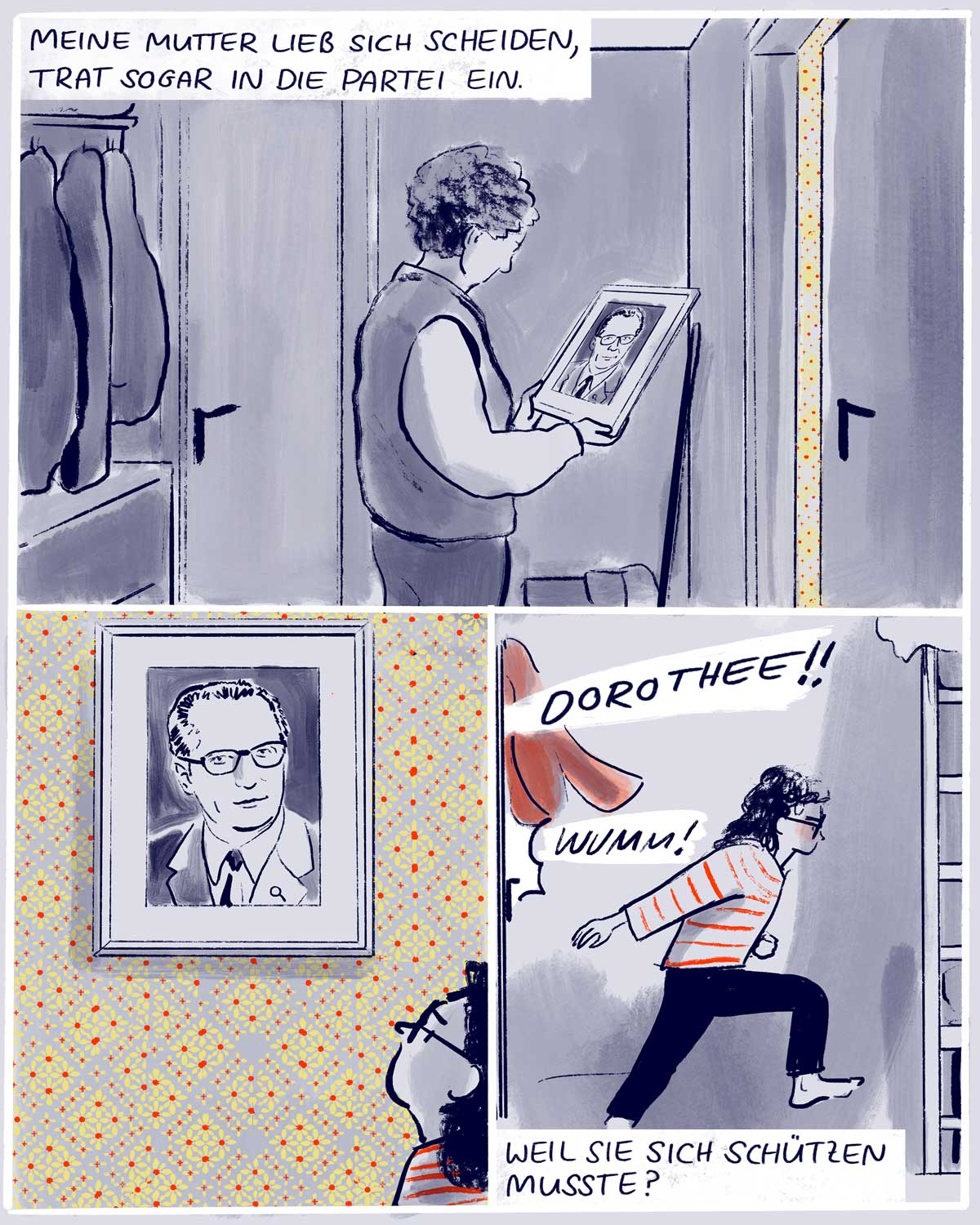
[¹ The reference is to the Socialist Unity Party of Germany (SED), the East German state party.]
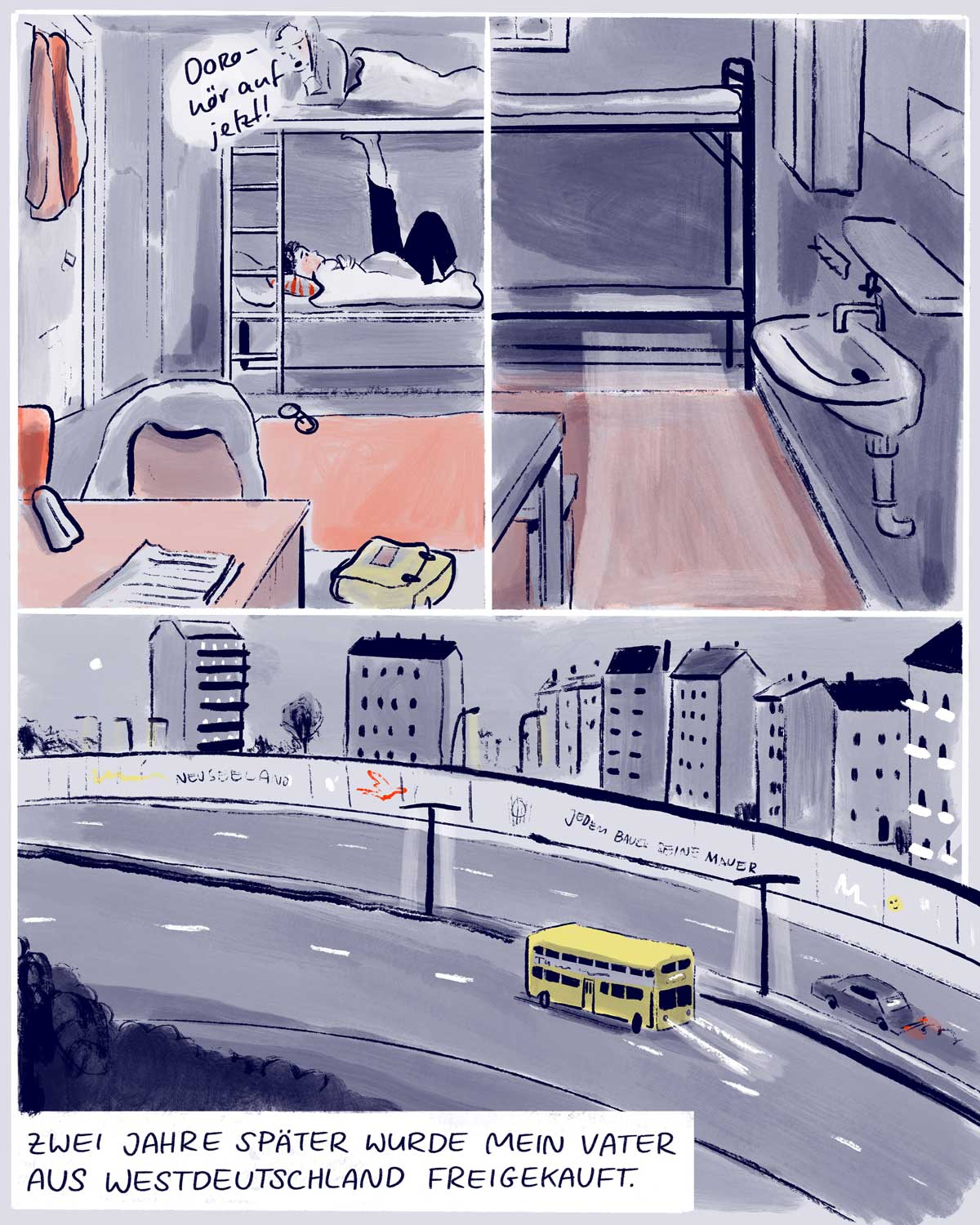
„Doro – just stop it!“
Two years later, he was ransomed from West Germany.¹
[¹ West Germany paid the GDR to secure the release of political prisoners; the practice is often referred to as the ‚Häftlingsfreikauf‘.]

A few years later—by then I was living in Leipzig—I felt the desire to see my father again.

I found out that he was a social worker in Kreuzberg.
„Here?“
„I’m your daughter.“
He didn’t recognize me.

We met a few more times.
But we remained strangers to each other.
Three years ago, he died.
In my family, no one wants to look into any of this.
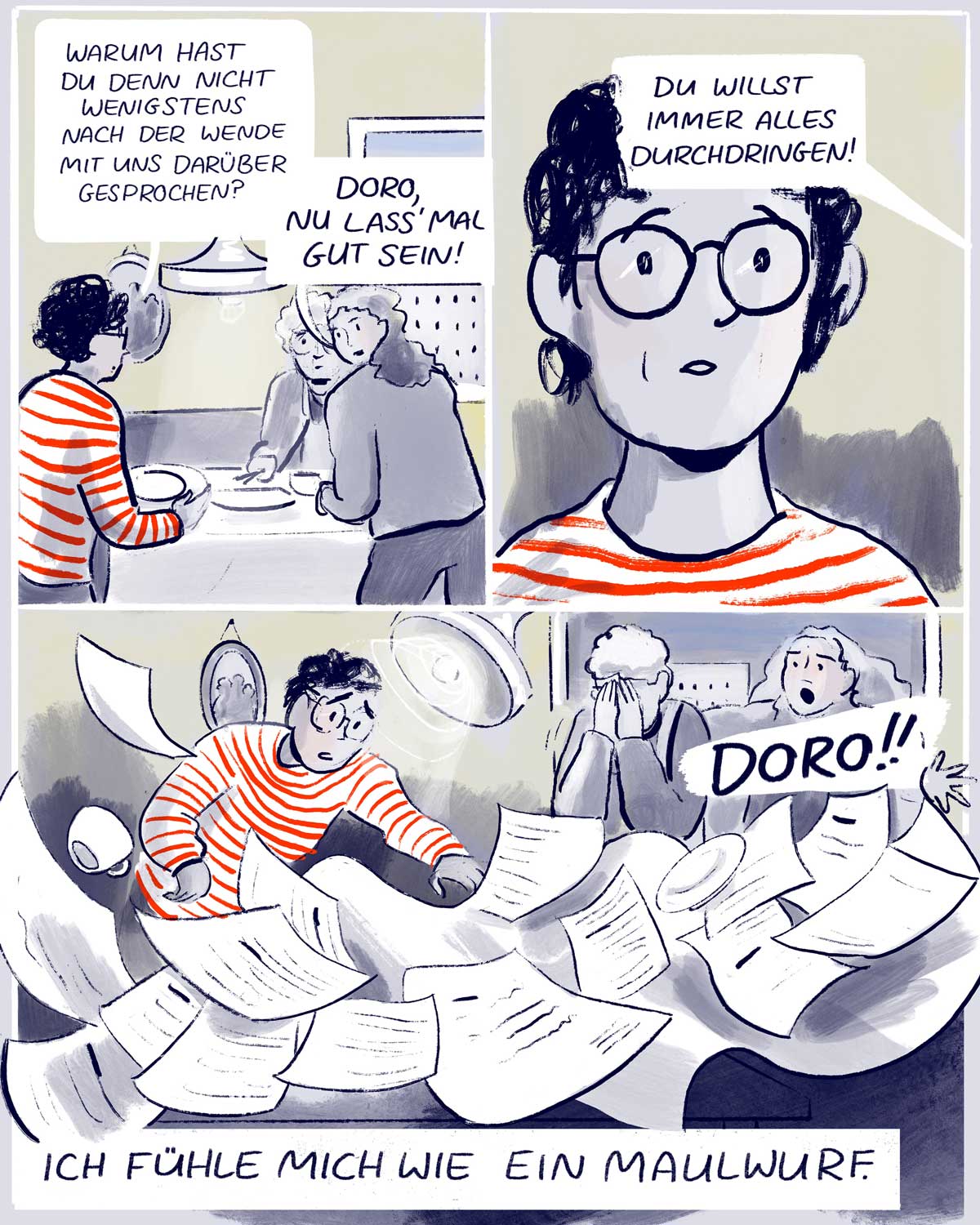
„Why didn’t you at least talk to us about it after the Wall fell?“
„Doro, come on, let it go!“
„You always want to get to the bottom of everything!“
„DORO!“
I feel like a mole.
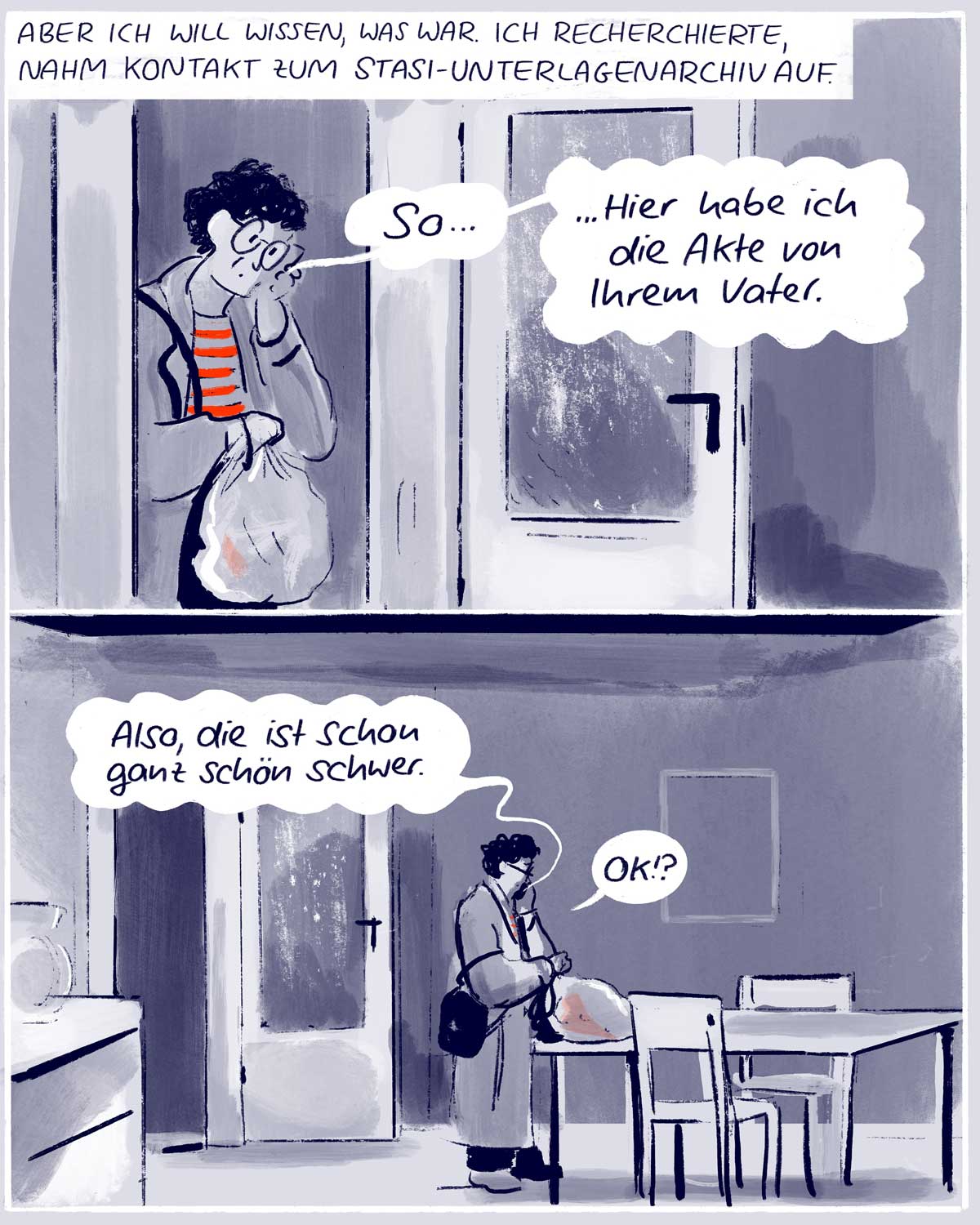
But I want to know what really happened. I did some research, got in touch with the Stasi Records Archive.
“So… here’s your father’s file.
It’s… pretty heavy.”–“Okay!?”
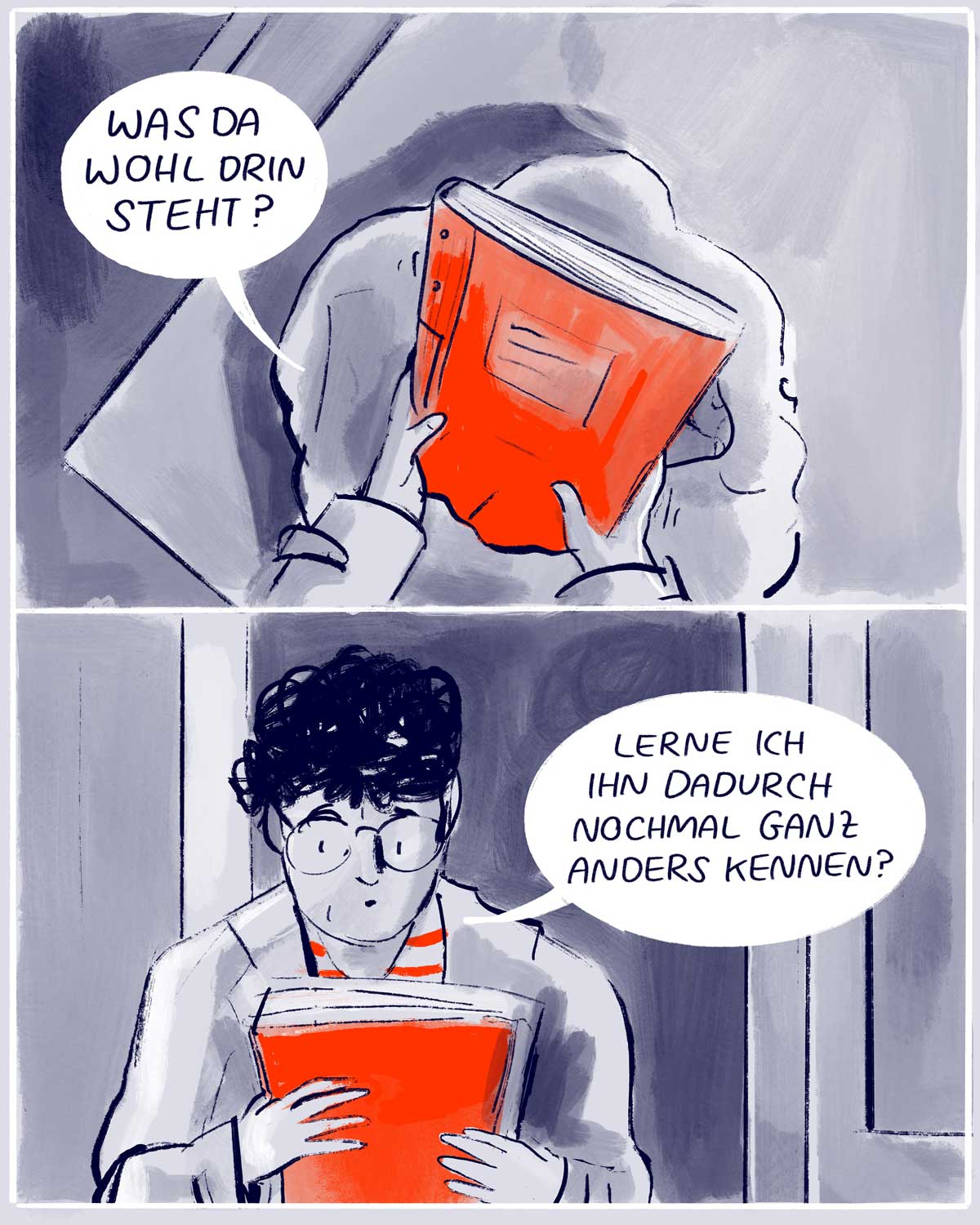
“What might be written in here? Will I get to know him completely new through this?”
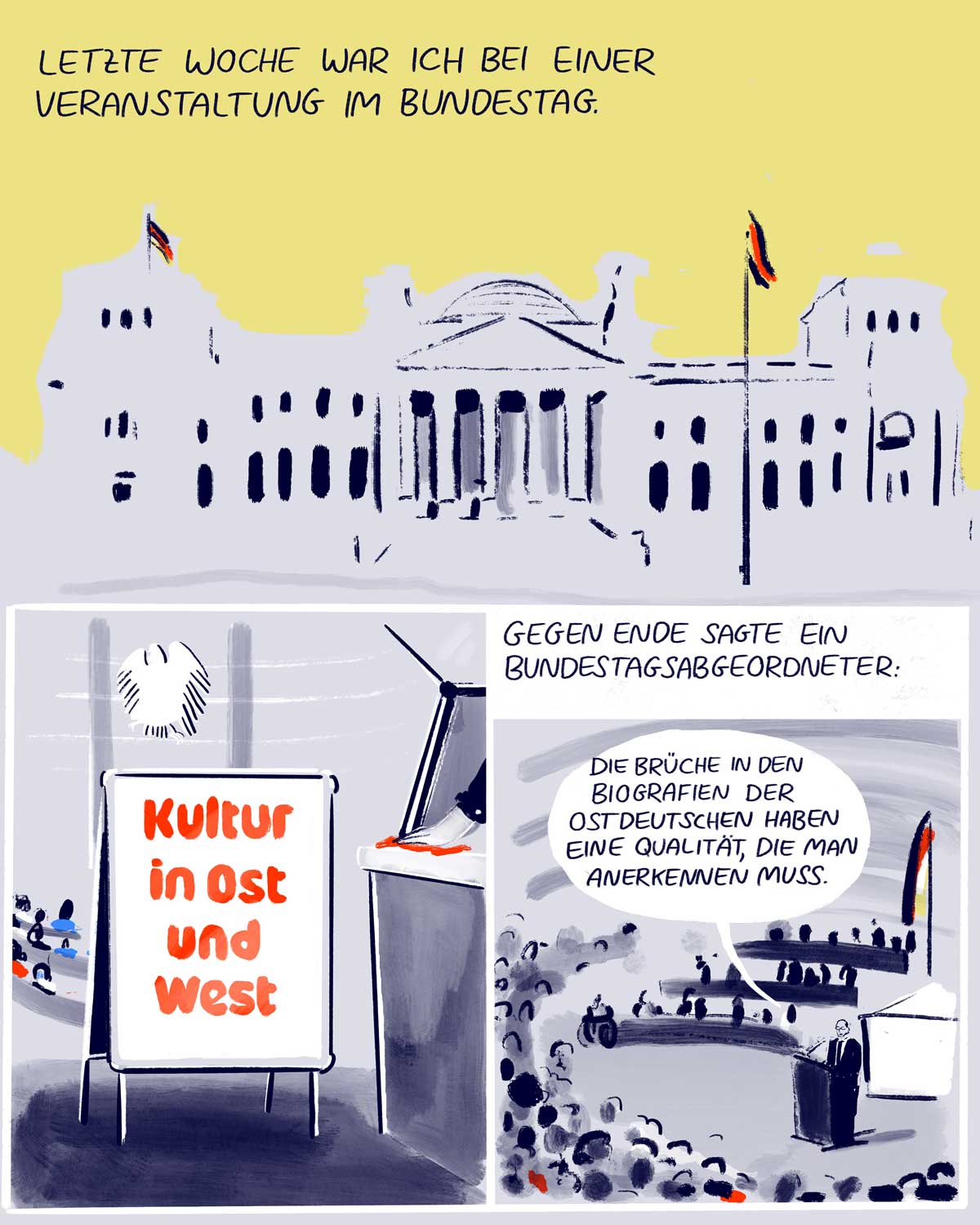
Last week I attended an event at the Bundestag.
“Culture in East and West”
Towards the end, a member of parliament said:
“The breaks in East Germans’ biographies have a quality that must be acknowledged.”
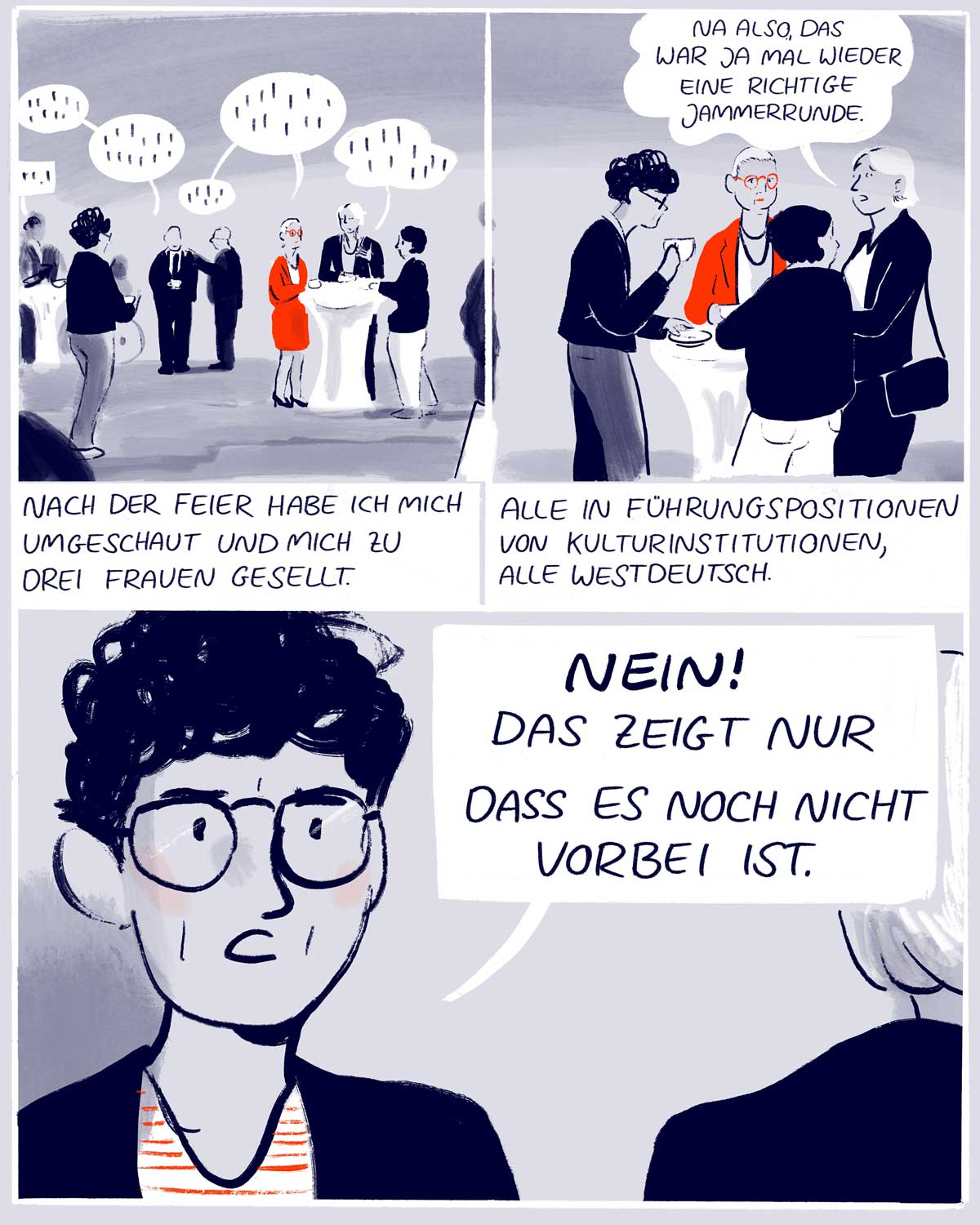
After the celebration, I looked around and joined three women.
All in leadership positions in cultural institutions, all from western Germany.
“Well, that was another proper complaining session today!”
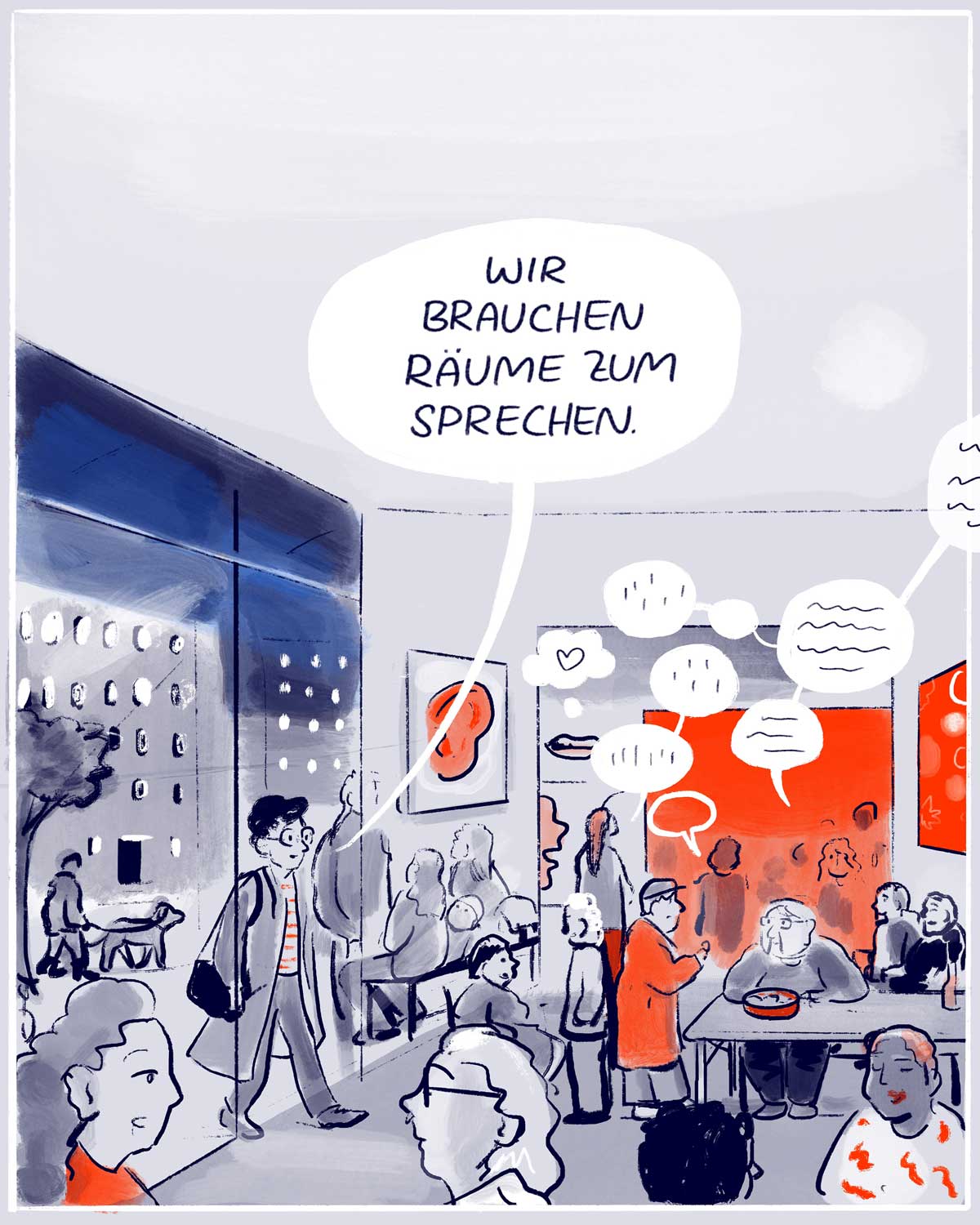
We need spaces to talk.
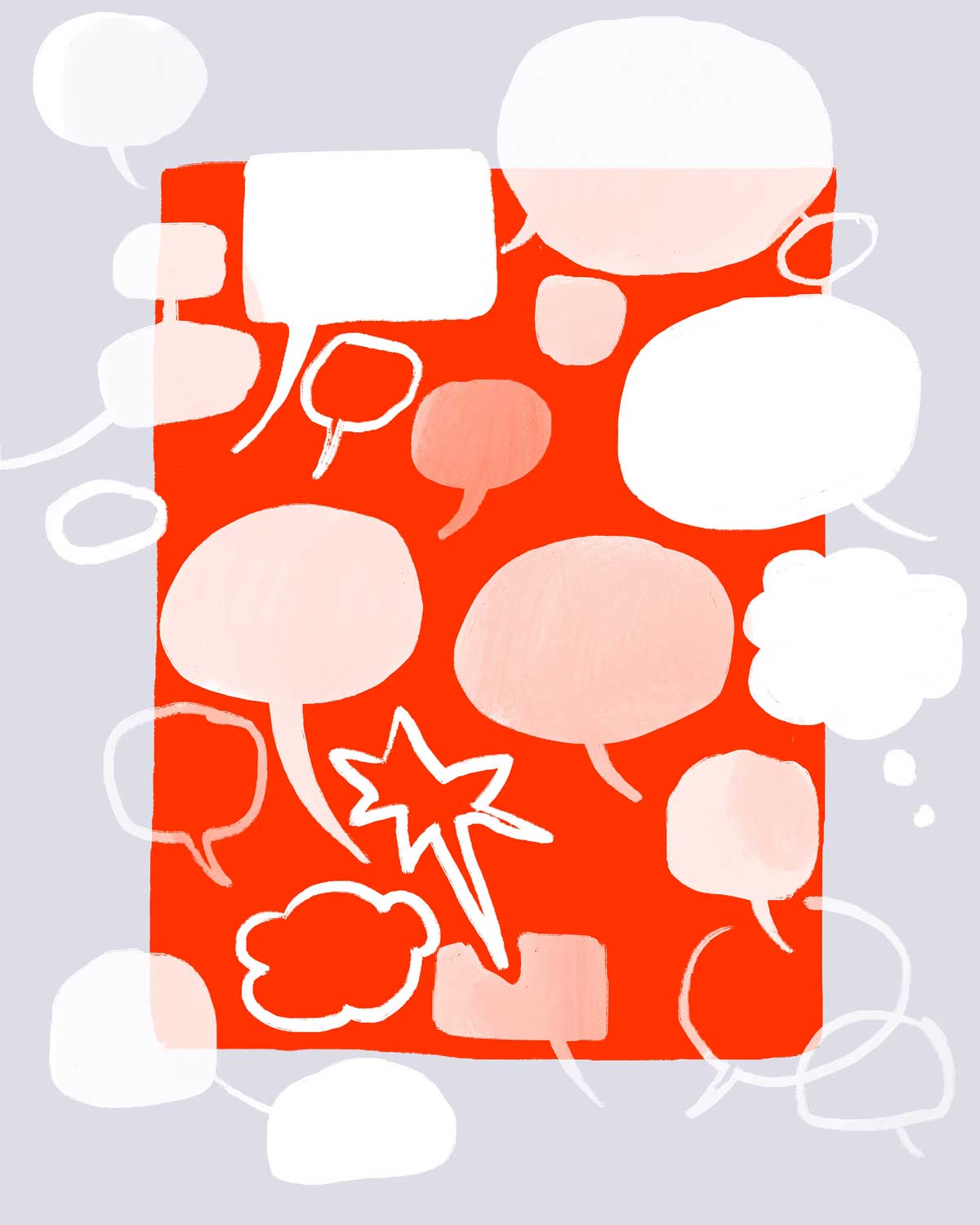
Finanzierung / Sponsoring
Ein Projekt im Rahmen der Kulturhauptstadt Europas Chemnitz 2025. Diese Maßnahme wird mitfinanziert durch Steuermittel auf der Grundlage des vom Sächsischen Landtag beschlossenen Haushaltes und durch Bundesmittel der Beauftragten der Bundesregierung für Kultur und Medien.

Mit freundlicher Unterstützung des Finnland-Instituts, Berlin / With the kind support of the Finnland Institut, Berlin
Wir danken unseren Sponsoren Volksbank Chemnitz, sowie der Deutschen Telekom!
